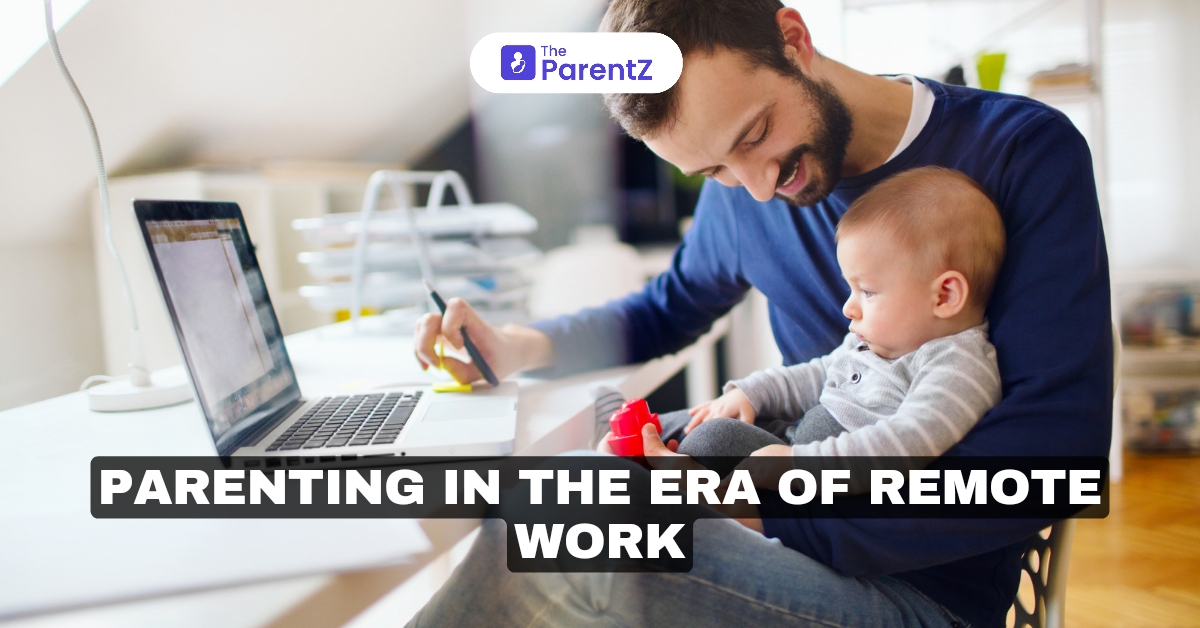The COVID-19 pandemic accelerated the shift to remote work, transforming how families navigate their daily routines. For many parents, the blend of work and family life has become both an opportunity and a challenge. Remote work offers the flexibility to be physically present, but it also blurs the boundaries between professional responsibilities and parenting. In this article, we’ll explore the impact of remote work on parenting, the challenges parents face, and strategies for creating a balance between work and family life.
The Changing Dynamics of Family Life
Remote work has fundamentally changed the dynamics of family life. In the past, parents typically left their homes for work, and there was a clear separation between professional and personal roles. However, with the home becoming both a workplace and a family space, parents are now juggling work responsibilities alongside caring for children, managing the household, and navigating school schedules.
- Increased Time with Family: One of the most significant benefits of remote work is the opportunity to spend more time with family. Parents no longer have long commutes, and they can be present for important milestones or daily routines like breakfast or homework time.
- Blurring of Boundaries: While more time at home can be advantageous, it also creates challenges. The lack of clear boundaries between work and family life can lead to stress, as parents are often interrupted during work hours by the needs of their children. This overlap can create frustration for both parents and children, especially when parents are unable to give their full attention to either work or family.
- Impact on Productivity: Remote work allows for flexibility, but it also means that parents may have to navigate distractions, such as caring for a young child while responding to work emails. Studies suggest that while remote work can be productive, parents with younger children may struggle to maintain focus due to constant interruptions.
The Challenges of Parenting While Working from Home
- Time Management: One of the biggest challenges of remote work is managing time effectively. Balancing meetings, deadlines, and children’s needs can feel overwhelming. Many parents report working late into the night to catch up on tasks that were interrupted during the day.
- Emotional Load: The mental and emotional load of parenting is intensified when parents are working remotely. The constant switching between roles—parent, employee, teacher, caregiver—can lead to burnout and feelings of inadequacy, as many parents feel they are not giving their best in any of their roles.
- Social Isolation: While remote work offers flexibility, it can also be isolating. Parents who used to socialize with colleagues in the office now find themselves managing work alone from home. This lack of social interaction can increase stress and decrease overall well-being, making parenting more challenging.
Strategies for Balancing Remote Work and Parenting
- Create a Structured Routine: One of the most effective ways to manage remote work and parenting is by creating a structured daily routine. Establish clear working hours and set boundaries with your children. For example, explain to your children that certain times of the day are dedicated to work and that they should avoid interruptions unless necessary.
- Designate a Workspace: Having a dedicated workspace can help create a physical separation between work and family life. Even if you don’t have a home office, carving out a specific area where you can focus on work will signal to your children and yourself that it’s time to concentrate.
- Communicate with Your Employer: Transparency with your employer is essential when working remotely as a parent. Discuss flexible work options, such as staggered hours or compressed workweeks, to better align your work schedule with your children’s needs.
- Involve Your Children: Depending on their age, involve your children in the process. Let them know when you have important meetings or deadlines, and make it a team effort to respect quiet time. This can teach them about responsibility and empathy.
- Take Breaks: Don’t feel guilty for taking breaks to spend time with your children. Short breaks to play, read, or simply connect can reduce stress and help you return to work with renewed focus.
The Silver Lining of Remote Work for Parents
While the challenges of remote work are significant, there are also numerous advantages. Parents can attend school events, be there for important milestones, and form deeper bonds with their children by being physically present. Remote work also provides the opportunity for families to redesign their lifestyles—living in more affordable or desirable areas, spending less time commuting, and promoting a better work-life balance overall.
Conclusion
Parenting in the era of remote work is a balancing act, requiring careful time management, emotional resilience, and clear boundaries. While the challenges are real, the potential for deeper family connections and greater work-life flexibility is a significant benefit. By implementing practical strategies, parents can successfully manage the dual roles of being both present for their families and productive in their careers.






Be the first one to comment on this story.